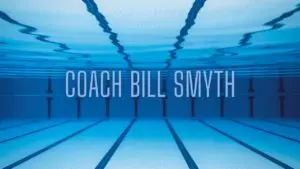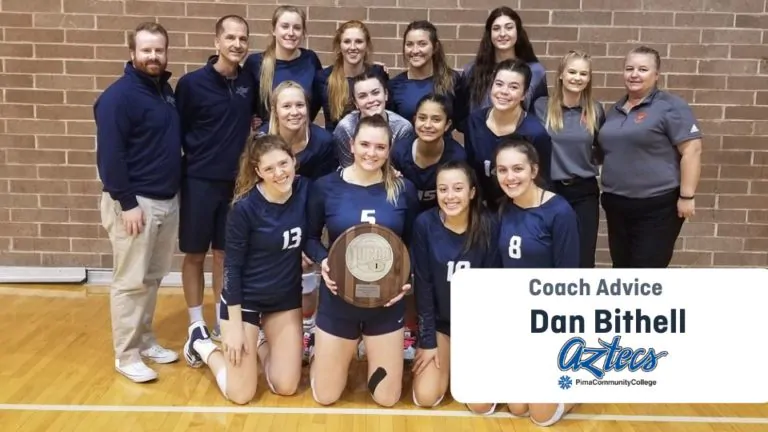A big recruiting question that we asked BU Men's and Women's Swimming and Diving coach, Bill Smyth, was: “What's the essential quality that you look for in a recruit?” to which he replied: “be fit.” However, it's not the kind of “fit” that you would normally expect.
Smyth says it's more about “[fitting] your athletic criteria, academic criteria, culture, ability to improve and camaraderie with the current team.” It's hard to argue with that tactic; throughout Smyth's career, his athletes have boasted 116 individual conference championships. Through Smyth's first ten years at BU, he owned a combined .746 dual meet win percentage with both the men's and women's teams.
Related: 10 Ways to Calm Your Nerves at a Swim Meet
Smyth got his coaching start as an assistant at the University of Virginia in 1994, where he helped develop their men's and women's teams until he came to BU in 2005. During his time at UVA, he was also heavily involved in recruiting high school athletes for the program, and things are no different at BU. When we asked about the dos and don'ts of the recruiting process, Smyth says the one thing you shouldn't do is “assume. Ask any questions that come to mind during the process.” In contrast, he stressed the importance of making a positive impression on the team and coaches through every communication.
In May of 2005, Smyth took the head coaching job at Boston University. Since then, every school record with the exception of one has been reset at least once throughout his time there. He has also had one diver, and two swimmers qualify for the NCAA championships, including one who reset the Patriot League record in the women's 1650-yard freestyle. With a winning record like Smyth's comes a rigorous practice schedule, and his expectations for incoming athletes highlight this. He expects his athletes to train “eight to ten times per week for most of their club career.” He also is looking for a “tough curriculum, with more A's than B's on the transcript” in addition to honors, AP, and IB courses. Regarding weightlifting, he prefers some necessary experience; but nothing too sophisticated. What's the best way to get on Smyth's radar? Fill out his athletic questionnaire as thoroughly as possible.
Related: 8 Great Recruiting Tips from Michigan State University Swimming and Diving Coach, Matt Gianiodis
In the world of swimming and diving, as applied to college recruiting, the process seems to be taking place earlier and earlier in high school. Smyth is no stranger to this concept; when we asked him what the best way an athlete can get a hold of him, he said “Earliest should be a month before their junior year begins all the way through the end of their junior year. Email is best initially, soon followed by phone calls on their end.” Junior year tends to be the most crucial year for athletes to reach out when it comes to swimming and diving, and according to Smyth, they should whittle their college choices down to their top five schools by the end of that year. He also recommends that athletes visit their schools of interest during spring break, summer, and any free time they have throughout their junior year. This isn't to say that prospective athletes should only apply to five schools. His advice for recruits who get turned down by their dream schools is to “be ready for backups, and backups for the backups.”
Highlight videos can be an essential part of a prospective athlete's recruiting profile. But in the realm of recruiting for swimming, these videos don't exist, nor would it make sense to send one in. Instead, prospective swimmers should send in their best race videos, particularly a race of your fastest time in your best event. Stroke technique turns, and kicking ability are the three things that jump out at Smyth when he sees these videos, as it will give him more of an idea of what he could potentially be working with.
Last but not least, I want to end on the topic of social media. When it comes to an athlete's social media page, Smyth believes that it's a big factor when it comes to recruiting potential newcomers. He said that he doesn't research his athlete's social media habits, but advises prospects looking to get their foot in the door that a tweet or post that they make is in many ways permanent. In this aspect of recruiting, athletes should proceed with caution, as they may not be able to get away from something they posted.
Have an idea for a story or a question you need answered? Want to set up an interview with us? Email us at [email protected]
* Originally published on May 30, 2022, by Michael Choate







